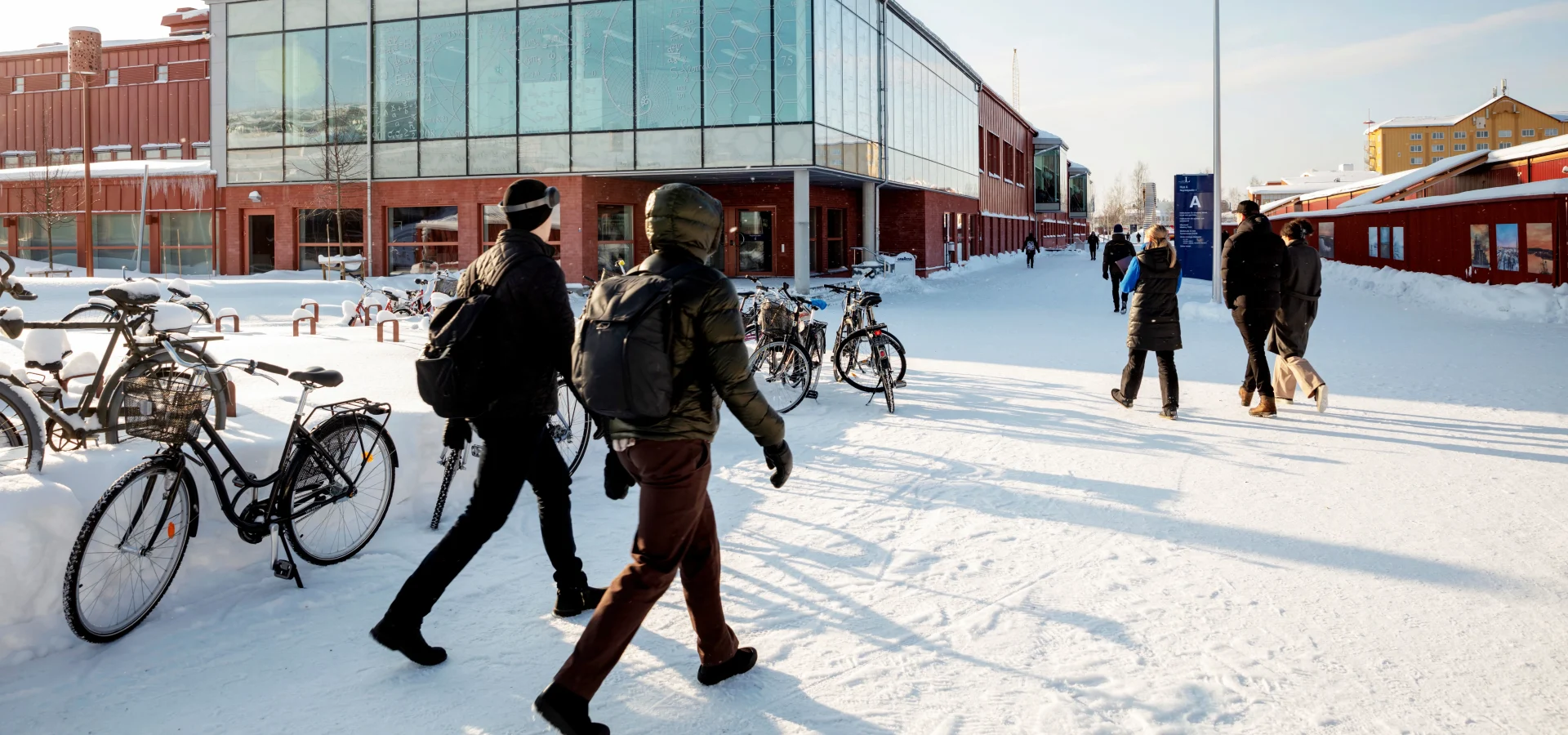
Type of Employment Full-time
Job position Research assistant
Work model On location
Application due date 22 October 2025
Postdoc in Robotics and Artificial Intelligence
Luleå, Sverige
Type of Employment Full-time
Job position Research assistant
Work model On location
Application due date 22 October 2025
Are you the one?
Luleå University of Technology is growing rapidly with world-leading expertise in several research areas. We shape the future through innovative education and groundbreaking research results, and based on the Arctic region, we create global social benefits. Our scientific and artistic research and education are conducted in close collaboration with international, national and regional companies, public actors and leading universities. Luleå University of Technology has a total turnover of almost SEK 2.1 billion per year. We are currently 1,900 employees and have 18,700 students.
In the coming years, billions of kronor will be invested in Norrbotten and Västerbotten in major projects aimed at a more sustainable society nationally as well as globally. Luleå University of Technology is involved in several of these highly topical research projects and the social transformation that follows. We have a wide range of programs to match the skills that are in demand. We hope you will help us build the sustainable businesses and societies of the future.
The Robotics and Artificial Intelligence (RAI) team (www.ltu.se/robotics) at the Department of Computer Science, Electrical and Space Engineering at Luleå University of Technology is now looking for a postdoctoral fellow to contribute to our growing activities. The RAI team conducts fundamental research in all aspects of robotics with a specific focus on aerospace robotics.
RAI's vision is to reduce the gap between theory and reality, while the team has a strong expertise in field robotics. Specific application areas are robotics for mines, construction sites, aerial inspection of aging infrastructure, multi-robot search and rescue operations, multi-sensory fusion, and multi-robot coordination, including multi-robot perception, decentralization, and mission execution.
The RAI team has a strong European participation in several R&D&I projects, we also participated in the DARPA SUB-T challenge with the CoSTAR team led by NASA/JPL (https://costar.jpl.nasa.gov/).
Subject description
Robotics and Artificial Intelligence aims to develop new robotic systems characterized by advanced autonomy to improve the ability of robots to interact with the environment and humans while performing specific tasks.
Project description
You will work in the field of robotics and artificial intelligence. More specifically, the position will involve extensive research activities in the area of design, experimentation and theoretical development with the following combined research areas linked to national, European and global R&D projects.
Previous experience in one or preferably several topics from these areas is considered a merit:
-Risk-aware navigation strategies integrating visual-language models for autonomous robots operating in cluttered and semantically complex environments.
-Advanced methods for collaboration between ground and airborne autonomous systems for resilient multimodal navigation and situational awareness.
-Mission specific inspection frameworks linking large language model interfaces with autonomous robots in industrial environments.
-Autonomy for multi-robot navigation and distributed task planning.
-Navigation strategies for robots in unknown, dynamically changing environments with real-time adaptation and safety guarantees.
-Exploration and mapping methods for transitioning from surface openings on planetary surfaces to underground lava tunnels using airborne-benign robotic systems.
Duties and responsibilities
The main tasks of the postdoc are mainly research. You will perform research with significant experimental components that should be published in peer-reviewed international journals and at major conferences. The position will include supervision of PhD and Master students, teaching and support in obtaining funding for future research projects from research funders/councils, EU Framework Programs or industry.
Qualifications
To be eligible for a postdoctoral position, you must hold a doctoral degree or a foreign degree equivalent to a doctoral degree in Automatic Control or Electrical and Electronics Engineering or related subject. A doctoral degree awarded no more than three years before the application deadline provides a useful qualification. Candidates who have been awarded a PhD at an earlier date may also be considered if there are special reasons, such as various types of statutory leave of absence.
The research tasks require a solid mathematical background with proven advanced experimental skills and excellent programming skills (e.g. C++, ROS, Matlab, etc.). You should have a strong vision to evaluate and demonstrate the research results in real operating conditions, in an approach to reduce the gap between pure theory and experimental verifications. You will be required to represent the group in different contexts, both in Sweden and abroad and should therefore have excellent knowledge of English.
Information to be provided
This position is a full-time position for three years. Place of employment: Luleå. Intended start date: as agreed.
For further information, please contact: George Nikolakopoulos, Professor and Head of Department, 0920-49 1298, geonik@ltu.se
Trade union representative:
SACO-S Diana Chroneer, 0920-49 2037 diana.chroneer@ltu.se
OFR-S Marika Vesterberg, 0920-49 1721 marika.vesterberg@ltu.se
How to apply
We prefer you to apply for this position by clicking on the application button below. The application should include a detailed CV with a full description of all scientific merits and publications of the candidate, motivation letter, a research plan with a description of the research topics, list of successful grant applications, list of 2 persons who can give recommendations for the candidate and copies of verified and translated high school and university diplomas. Your application must be written in Swedish or English. Please mark your application with the reference number below.
Deadline for applications: October 22, 2025
Reference number: 4130-2025
